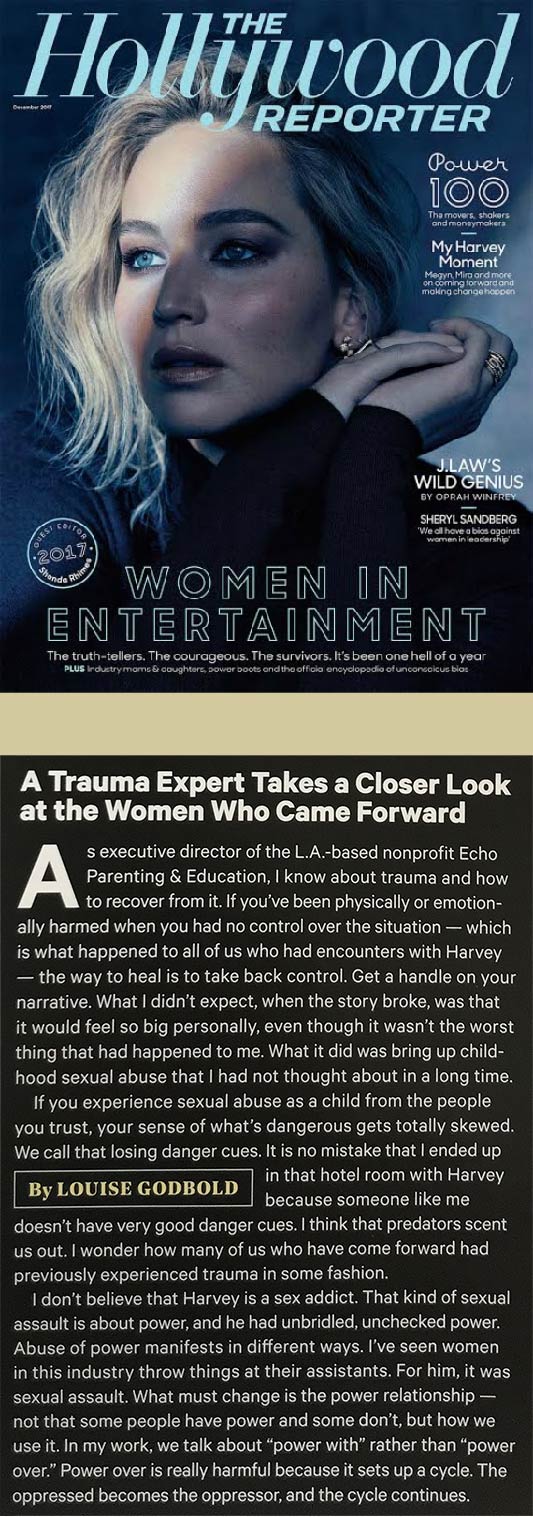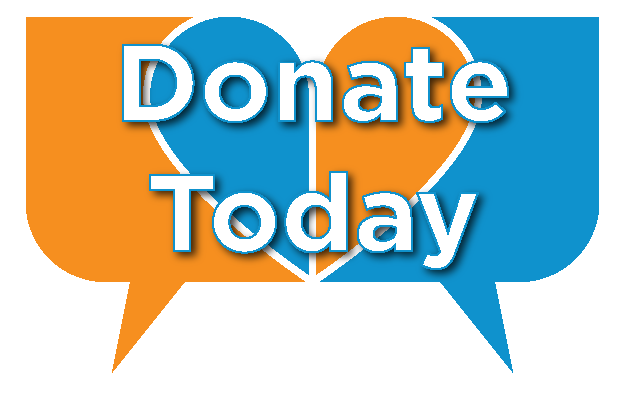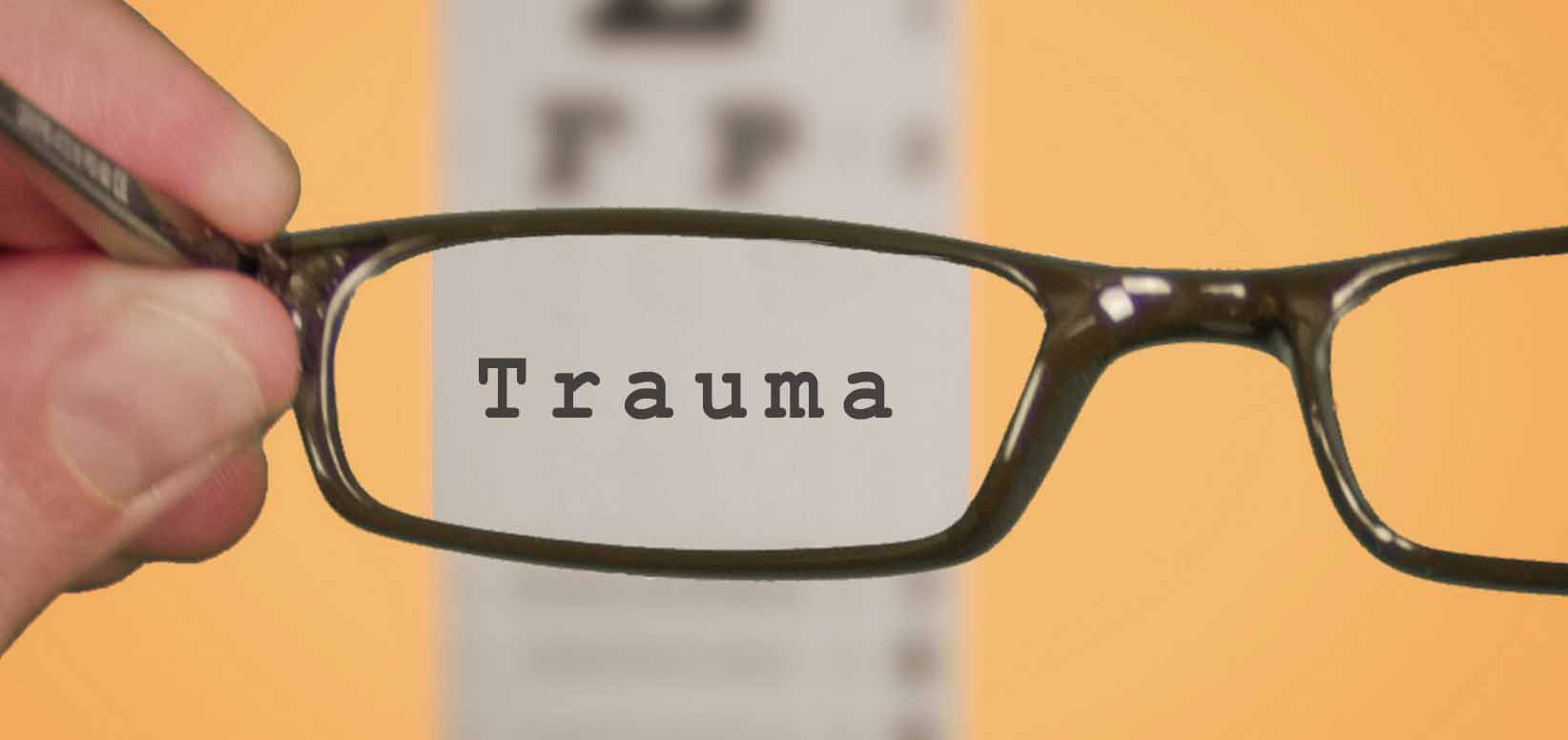
Louise Godbold is featured in The Hollywood Reporter 2017 Women in Entertainment issue. In October she came forward to add her voice to the long list of women accusing Harvey Weinstein of sexual misconduct.
“I didn’t want to supply salacious details to the already much chewed over picture we have of habitual, historical abuse. I wanted to take control of the narrative and use this opportunity to talk about childhood trauma and the patterns it sets up in later life. It is so important that the science we now have about trauma and resilience reaches a larger audience. At Echo we want people to understand that our relationships with one another, and especially our children, will determine whether we continue in these destructive cycles, or whether the trauma and abuse stop now.”


The Interview: A Trauma Expert Takes a Closer Look at the Women Who Came Forward
“As the executive director of the L.A.-based nonprofit Echo, I know about trauma and how to recover from it. If you’ve been physically or emotionally harmed when you had no control over the situation — which is what happened to all of us who had encounters with Harvey — the way to heal is to take back control. Get a handle on your narrative. What I didn’t expect, when the story broke, was that it would feel so big personally, even though it wasn’t the worst thing that had happened to me. What it did was bring up childhood sexual abuse that I had not thought about in a long time.
If you experience sexual abuse as a child from the people you trust, your sense of what’s dangerous gets totally skewed. We call that losing danger cues. It is no mistake that I ended up in that hotel room with Harvey because someone like me doesn’t have very good danger cues. I think that predators scent us out. I wonder how many of us who have come forward had previously experienced trauma in some fashion.
I don’t believe that Harvey is a sex addict. That kind of sexual assault is about power, and he had unbridled, unchecked power. Abuse of power manifests in different ways. I’ve seen women in this industry throw things at their assistants. For him, it was sexual assault.
What must change is the power relationship — not the fact that some people have power and some don’t, but how we use it. In my work, we talk about ‘power with’ rather than ‘power over.’ Power over is really harmful because it sets up a cycle. The oppressed becomes the oppressor and the cycle continues.”




